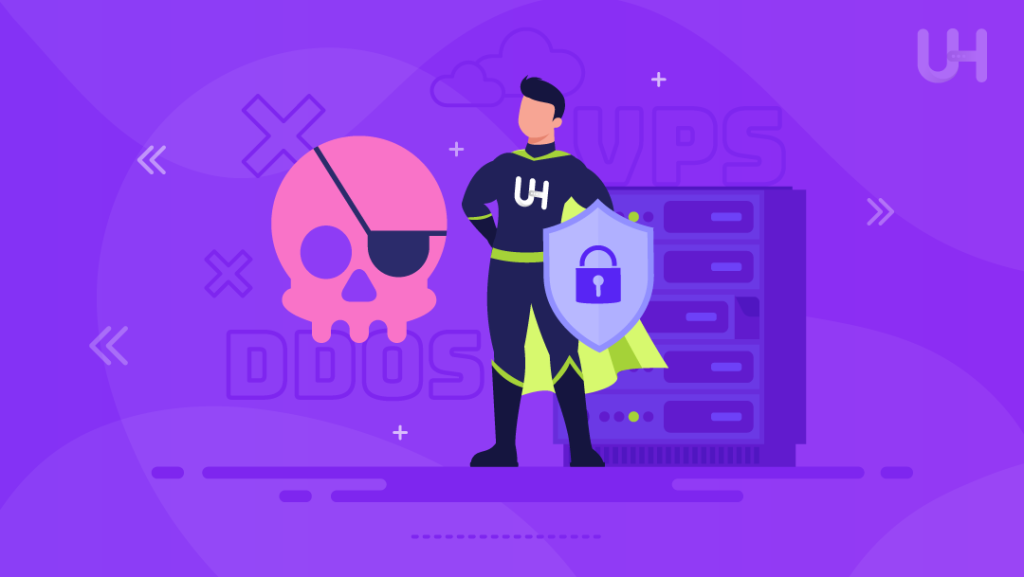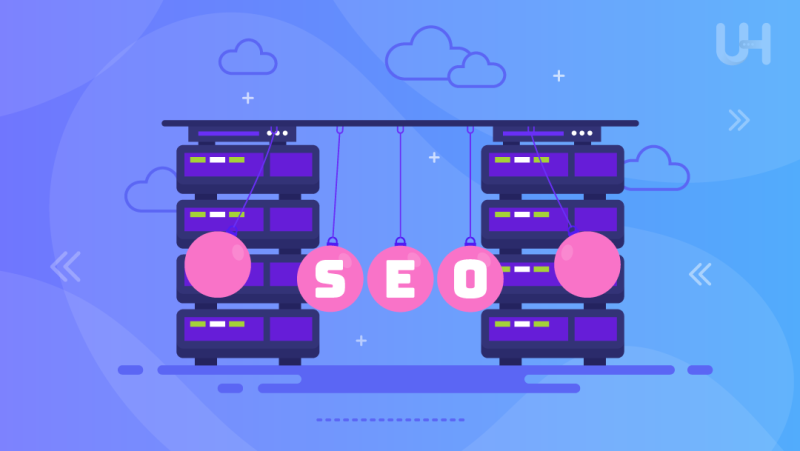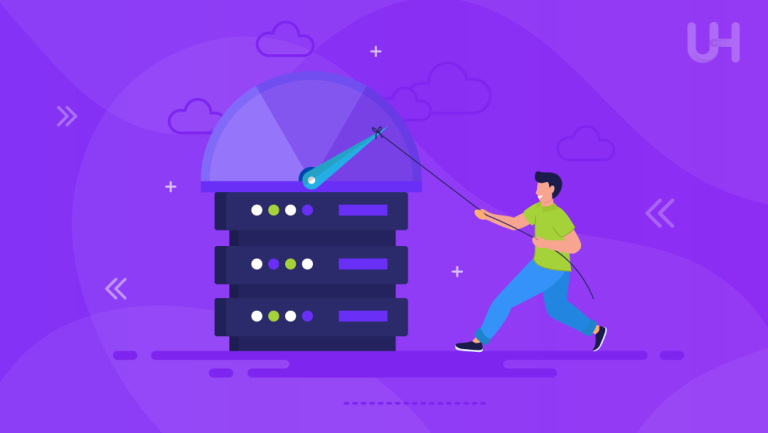“Nothing is certain except death and taxes”. Benjamin Franklin directed these words to Jean-Baptiste Le Roy in 1789, but they still hold. Nowadays, they can be related to Google’s algorithm, which is constantly evolving, and, although only partially revealed, we can infer many things: the importance of meta descriptions, hosting impact on SEO, or optimal keyword frequency.
Although only Google’s crucial employees understand all the ranking factors taken into account by the search engine’s bots, our focus today will be on a specific aspect: web hosting. Hosting impact on SEO is significant because it directly influences three critical factors.
Speed, security, and reliability are three pillars that have a tremendous impact on how quickly your site loads, whether on a computer or mobile device, which translates into conversion and bounce rates.
These elements determine whether your website or e-commerce platform will rank higher or, due to poor performance, lose the search position with your competition.
Hosting Speed and Its Impact on SEO
It is obvious that the time of website loading affects the user experience and, consequently, their satisfaction. Low satisfaction, in turn, results in lower conversion rates, impacting a company’s revenue.
One might say that conversion is not SEO, and in essence, this is true. However, page loading speed and UX influence Google rankings. It’s a connected system.
Previous Ranking Factors
In May 2021, Google announced that UX was becoming a ranking factor, correlating with the introduction of the Core Web Vitals assessment system. Since the introduction of this algorithm, page loading speed has gained significant importance. Until this date, the following factors were critical for the search engine position:
- Mobile-Friendly – This indicator shows whether your site is adapted for mobile devices and whether the user experience on a mobile phone or tablet is as good as on a desktop. You can check it by visiting https://search.google.com/test/mobile-friendly. Paste your site’s address, and you will receive a report indicating what needs fixing or improving.
- Page Speed Insights – It talks about how quickly your website loads. You can also check if you meet these requirements. Just go to https://pagespeed.web.dev/ and enter the address of your website in the provided box.
- HTTPS Ranking Boost – In this case, pages with an SSL certificate and data encryption will appear higher in the rankings.
- Intrusive Interstitials – It refers to pop-ups that cover the entire content on the page and are difficult to close.
- Safe Browsing – Meaning no malicious software.
Core Web Vitals – New Ranking Factors
Core Web Vitals are user-centric metrics that provide results regarding various aspects of pages, including loading time, interactivity, and content stability.
- Largest Contentful Paint (LCP): Measures the loading performance of the page. When LCP occurs within 2.5 seconds, the website is user-friendly.
- First Input Delay (FID): Measures the interactivity of the page. To ensure user comfort, websites should have an FID shorter than 100 milliseconds.
- Cumulative Layout Shift (CLS): Measures visual stability. For a good UX, websites should have a CLS score of less than 0.1.
Ultimately, the new algorithm will combine both of the above metrics and analyze whether your website meets all the requirements to rank higher than your competition. Core Web Vitals have become the primary factors, and the rest only complement them. This change increased hosting impact on SEO.
Elevate Your Google Position
Dedicated resources, blazing-fast loading speeds, and advanced security measures. With a focus on meeting Google’s Core Web Vitals, UltaHost ensures optimal website performance, contributing to a positive user experience and improved search engine rankings. Gain a competitive edge with UltaHost’s SEO VPS Hosting, designed to enhance your website’s visibility and elevate its position on Google.
Reliability vs. Page Loading Speed
Several factors influence the speed of page loading. Some are related to the code of the page itself, its optimization, and the optimization of images and other media that need to load with the page. An additional number of scripts and plugins also increases the page loading time.
To speed up page loading, you need to eliminate these elements from the portal and check if you still have a problem with the full loading time of the website. If so, it may turn out that the issue lies with the hosting.
The reasons why hosting impact on SEO one should look at the website speed. Loading speed depends on the resources provided by the hosting company. You also need to know if you have your private disk space or if it is also shared. In the latter case, many factors can significantly lower the ranking of your site in search engines.
It’s not just about the fact that with shared hosting you don’t have a guarantee of private resources, so during peak hours when many sites experience increased traffic, it loads all supported sites and applications more slowly.
The greatest risk is that it may turn out that you share an IP address with someone who is using resources for improper activities, such as sending spam. It could harm you as well when Google imposes restrictions on such an address. Therefore, it’s wise to use specialized solutions to ensure speed and security, e.g., Ubuntu VPS Hosting.
Check the Correctness of Your Site Configuration
You also can’t allow a situation where your site is not accessible to Google robots that want to enter and check its content. It won’t positively impact the indexing of your website.
If Google robots don’t receive a clear signal not to index pages (for example, if the site is undergoing maintenance), they will attempt reindexing from time to time. If this situation repeats several times, the site may receive negative ranking points or even disappear from search results.
You also must not forget about the so-called Time to First Byte (TTFB). It is calculated from the user sending a query to the server until their computer receives the first byte of data. It also indicates how quickly your site operates.
Hosting solutions like NVMe VPS Hosting, LiteSpeed server with LS Cache plugin, or REDIS in WordPress, as well as the HTTP/2 protocol, can significantly speed up the performance of websites.
Security of Hosting and SEO
What does secure hosting mean? It is a service that can handle technical issues if they arise, but, most importantly, can effortlessly thwart the actions of hackers. It includes DDoS attacks or other activities that could result in the site infection, potentially displaying an alert that the site is unsafe during a user’s visit.

Check the phrase “This site may have been a victim of a hacker attack” in Google. On Google’s support page, you’ll learn that sites providing harmful or spammy content, engaging in practices harmful or dangerous to users, or those attacked by hackers, are blocked in search results.
Therefore, when choosing hosting for a website – whether it’s hosting for a blog or eCommerce hosting for an online store – you must prioritize the security of your files and data, as well as the support you’ll receive from the hosting company in case of unforeseen attacks or failures.
Good hosting practices include frequent automatic data backups and tools that help speed up data loading, such as VPS hosting with Cloudflare.
Blocking a site in search results is a severe penalty for website owners. Hence, it’s essential to select the right business partner who ensures your security and allows you to focus on selling your product or service while taking care of technological issues.
Conclusion
As evident, speed, security, and reliability play a significant role in SEO, simultaneously intertwining with other factors that impact your convenience, business security, and customer satisfaction.
When choosing web hosting, one must consider not only financial factors but also technological aspects, customer support, and solutions that provide access to your resources at all times, and secure them from attacks of varying intensity.
To gain trust of your customers you need a reliable web hosting server. Choose WordPress Secure Hosting from UltaHost. Get 24/7 support from our support team. Our powered infrastructure focuses on auto-scaling, performance, and security. Let us show you the difference! Check out our plans!
FAQ
What factors does hosting impact on SEO?
Hosting significantly influences the speed, security, and reliability of a website. These factors, in turn, affect user experience, conversion rates, and search engine rankings.
How does hosting speed impact SEO?
The speed of page loading directly impacts user satisfaction, conversion rates, and Google rankings. Faster-loading websites are more likely to rank higher in search results. And the website speed and the time of loading depends of hosting – more resources hosting has, faster the website is.
What are the Core Web Vitals and their importance in SEO?
Core Web Vitals, introduced by Google in May 2021, include Largest Contentful Paint (LCP), First Input Delay (FID), and Cumulative Layout Shift (CLS). These user-centric metrics play a crucial role in determining a website’s ranking.
Why is security an essential aspect of hosting for SEO?
Secure hosting is crucial for protecting websites from malicious activities, such as DDoS attacks. Google penalizes sites that engage in harmful practices or are compromised by hackers, emphasizing the importance of hosting security in SEO.










